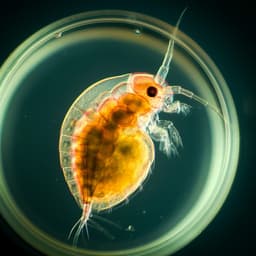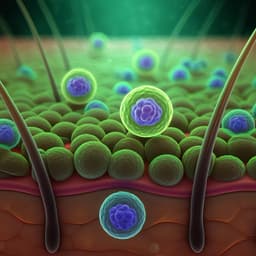
Medicine and Health
Development of a skin- and neuro-attenuated live vaccine for varicella
W. Wang, D. Pan, et al.
Discover the potential of v7D, a groundbreaking live-attenuated vaccine candidate for varicella, designed to minimize safety concerns while maintaining immunogenicity. Conducted by researchers including Wei Wang and Dequan Pan, this study showcases v7D's ability to replicate like wild-type VZV while significantly reducing infection in skin and neuronal cells.
Playback language: English
Related Publications
Explore these studies to deepen your understanding of the subject.







